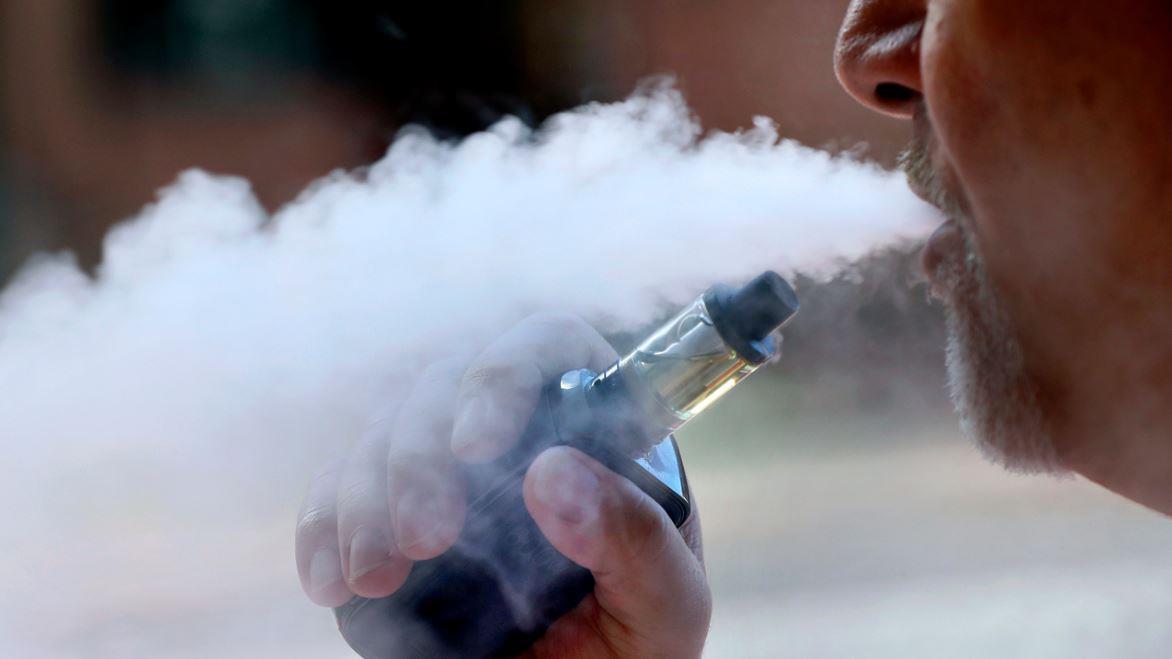Massachusetts vaping ban upheld - for now
The vaping industry’s attempt to put a hold on Massachusetts' four-month ban on the sale of its products was denied by a federal judge on Friday.
The temporary ban enacted by Gov. Charlie Baker (R-MA) on Sept. 24 targeting sales of e-cigarettes and vaping supplies -- both those used for nicotine and THC, the psychoactive ingredient in marijuana -- which is legal in the state.
This keeps intact the toughest prohibition yet in response to the nationwide outbreak in the lung disease linked to vaping that has affected over 1,000 people and caused 18 deaths through Thursday.
U.S. District Judge Indira Talwani declined to grant a temporary restraining order sought by the vaping industry, including by national industry group Vapor Technology Association (VTA) and four store owners.
“The court finds that plaintiffs have not demonstrated a substantial likelihood of success on the merits or that the balance of hardships between the parties weighs in (their) favor,'' according to the decision. “The court finds further that granting the request for a temporary restraining order would conflict with the public interest,'' the judge added.
Talwani did give the vaping industry some hope, as she scheduled an Oct. 15 hearing for arguments on whether she should issue a preliminary injunction against the ban.
On Friday, Joseph Terry, an attorney for the vaping industry, argued before Talwani that the Massachusetts ban is overly broad and suggested it should instead target “black market products sold by drug dealers.''
Terry blamed health problems on THC-based products, not ones solely using nicotine, and Talwani pointed out that no single product has been identified by U.S. health officials as the link to the lung illnesses.
The VTA says Baker's ban, if left standing, will irreparably destroy Massachusetts' $331 million nicotine vapor products industry and the livelihoods of nearly 2,500 workers employed by the industry.
“The court finds further that granting the request for a temporary restraining order would conflict with the public interest"
“The ban poses an existential threat to their businesses and the industry,” Terry said, while also noting that his clients - many of them small, family-owned vaping shops – are already falling short on their financial obligations, such as paying rent to landlords.
“You’re saying I ought to be more concerned about the economic harm to businesses for a two-week period than the potential people who will end up in the hospital during this two-week period?” Talwani asked Terry.
GET FOX BUSINESS ON THE GO BY CLICKING HERE
This is one of two lawsuits that have been filed against Gov. Baker and Monica Bharel, the commissioner of the state Department of Public Health, which is the agency carrying out the ban.
On Thursday, the VTA received a major victory on Thursday when it prevailed in a hearing in a New York State Supreme Court in Albany. The court temporarily prevented the state from enforcing a more limited ban, blocking the sale of flavored e-cigarettes, from taking effect.
Benevolent e-Liquids, Inc., a New York manufacturer, and Perfection Vapes, Inc., a New York retailer, joined the VTA in that lawsuit, which sought a declaratory judgment, a temporary restraining order, and a preliminary and permanent injunction against the New York State Department of Health (NYSDOH) and Public Health and Health Planning Council (PHHPC) to eliminate the ban.
"Not only will the State's arbitrary and misguided measure do nothing to address the marketing issues about which the State has complained, it is one of the worst examples of government overreach,” Tony Abboud, Executive Director of the Vapor Technology Association, said in a statement when the New York lawsuit was announced on Sept. 25.
“Banning flavors for vapor products, while leaving all flavored combustible products on shelves can only entice all users to smoke more. In addition, this action completely ignores the fact that the New York State Department of Health has found that the overwhelming majority of the illnesses it is investigating are directly tied to black market THC products and the presence of Vitamin E acetate in those products, something that the NYSDOH said it did not find in any of the nicotine products it tested."




















